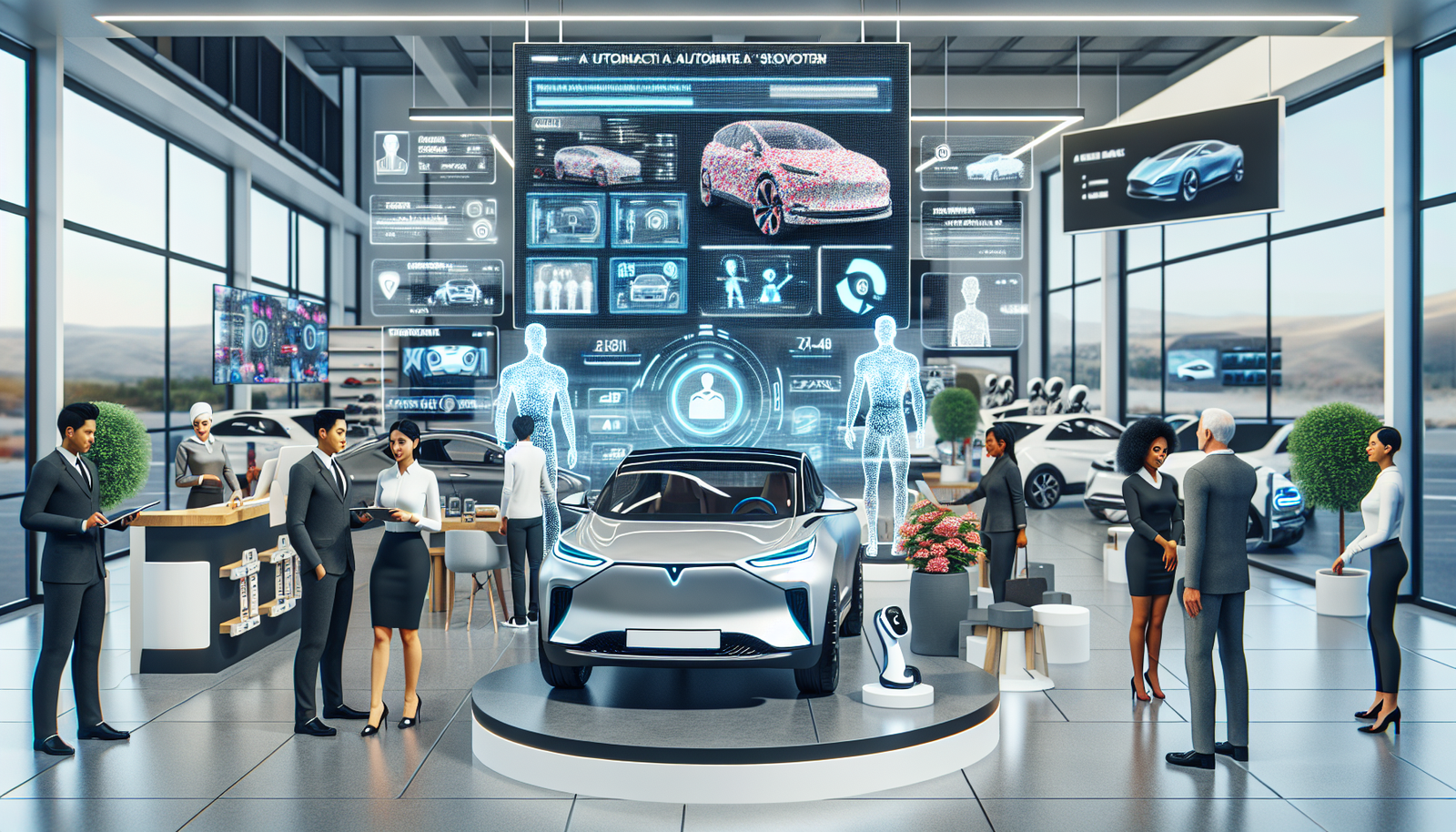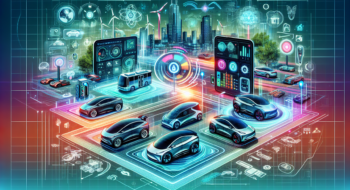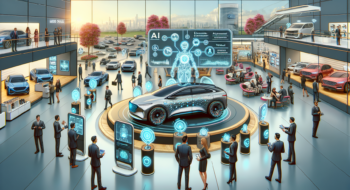The automotive industry is on the brink of a transformative revolution, driven by the integration of artificial intelligence (AI) into various aspects of buying, servicing, and dealership efficiency. As consumers demand more personalized and streamlined experiences, AI is stepping in to enhance decision-making, optimize operations, and redefine customer interactions. This evolution not only promises to improve the overall automotive purchasing journey but also aims to foster stronger relationships between consumers and dealerships. Join us as we explore the future of AI in the automotive sector and its potential to reshape the landscape of the industry.
Understanding AI’s Role in Automotive Buying
Imagine you’re shopping for a car. You sit down with a glass of iced tea, browsing online, and suddenly, an AI-powered assistant pops up, ready to guide you through the labyrinth of car options available. AI’s influence in the automotive buying experience is profound and growing by leaps and bounds. From personalized advertisements driven by your online behavior to chatbots providing instant customer service, the digital landscape is resembling a well-oiled machine.
Gone are the days when buyers had to trudge through endless dealership visits to find their dream vehicle. With AI-driven platforms, potential car buyers can filter their choices based on preferences for make, model, price, and even features like fuel efficiency or safety ratings. Recommendations can now feel more like a tailored suit rather than a one-size-fits-all experience.
Machine Learning and Data Analytics in Dealerships
Dealerships have always been a hub of data—sales, customer interactions, inventory information—yet the challenge has been effectively utilizing that data. Enter Neyrotex.com, a leader in harnessing machine learning and data analytics to maximize dealership efficiency. These tools are not only enhancing how dealerships serve customers, but they are also streamlining internal processes, ensuring that the right car arrives at the right time.
With predictive analytics, dealers can anticipate market trends and customer preferences, enabling them to stock the right vehicles, establish optimal pricing strategies, and prepare tailored marketing campaigns. This means less inventory sitting unused and more opportunities to create satisfied customers who feel their needs were anticipated.
Enhancing the Service Experience
What happens after the purchase? The journey doesn’t end with handing over the keys; it’s just the beginning. AI is now imbuing the service experience with a level of sophistication that was previously unimaginable. Think about it: servicing your vehicle can be as seamless as ordering takeout, thanks to AI’s predictive maintenance capabilities. Sensors in vehicles collect data, which AI then analyzes to forecast when a part will likely fail. Notifications are sent to both the dealer and the owner, allowing for proactive maintenance that mitigates inconveniences caused by breakdowns.
- Appointment Scheduling: Chatbots can now manage appointment bookings, analyze service history, and remind owners of upcoming maintenance needs.
- Personalized Customer Engagement: Service centers can reach out to customers in a targeted way, offering them tailored promotions based on their vehicle history.
- Real-Time Updates: Customers can receive real-time updates about the status of their vehicle during service, eliminating the agony of waiting.
The outcome? Higher satisfaction levels and a stronger bond between dealerships and customers. No longer would you have to wait indefinitely with faded magazines in hand—it’s as if AI injected a fresh breath of efficiency into the very fabric of customer service.
AI-Powered Sales Predictions
Understanding what a consumer wants before they realize they want it is key to improving dealership sales. AI and data analytics work in a tandem relationship allowing dealerships to study trends, price historic sales, and predict future demands. Imagine a dealership knowing that a particular make and model is going to fly off the lot during the upcoming football season. AI insights empower dealers to stock up and strategically advertise those vehicles at the right moment. According to industry reports, this kind of predictive insight can increase sales performance dramatically, leading to significant profit margins.
Transforming Customer Interactions
AI is also changing the very essence of how consumers interact with dealerships. The myth that purchasing a car is a stressful experience is steadily being dismantled by technology. The level of personalization offered by AI allows customers to engage with brands that understand their preferences through real-time data and machine learning algorithms. They can walk into a dealership, and the representative, backed by AI-data, already knows what they are here for.
Virtual Reality and AI: A Driving Duo
But personalization doesn’t stop at data; it extends to virtual reality (VR) and augmented reality (AR) experiences too. Through immersive technology, potential buyers can virtually ‘test drive’ or examine a vehicle without even stepping outside. This adds a layer of thrill to the buying experience. Take a moment to think about your own enthusiasm for car shopping if you could sit in any car from the comfort of your living room—now that’s a solid hook!
Thus, automotive businesses are merging AI with cutting-edge VR technologies to captivate and engage customers in unique and memorable ways. It’s almost a ‘choose your own adventure’ experience as consumers can explore features, evaluate aesthetics, and consider price points with a pinch of fun.
The Future of AI in Automotive: What Awaits Us?
What does the future hold? The landscape of the automotive industry is ever-evolving, and AI is paving the road ahead. Enabled by innovations such as the Internet of Things (IoT), 5G connectivity, and sophisticated robotics, the collaboration between humans and intelligent systems is bound to reach unprecedented heights.
- Autonomous Vehicles: Self-driving cars are not just a far-off fantasy—they are actively being developed. With AI at the helm, we can expect safer, more efficient travel in the coming years.
- Predictive Customer Support: AI will likely evolve to a stage where it anticipates queries or issues even before customers recognize them, embodying a proactive approach to service.
- Ethical Considerations: As we strive for better AI integration, dealerships will have to focus on ethical practices, ensuring data security and privacy for consumers.
Moreover, corporations that prioritize AI-driven customer insights will likely dominate the market. Organizations must nurture a culture of continuous learning and adaptation to remain relevant in this high-octane environment. The power of AI in analytics must inform every dealership strategy, harnessing the vast amounts of data to cater to client needs. The future will demand not just technical prowess but also a deep understanding of consumer behavior captured by AI.
In Conclusion
Artificial intelligence is no longer a concept of the future; it is the now, reshaping the automotive industry in remarkable ways. From transforming how consumers buy their vehicles to how they engage with service departments, AI is optimizing every corner of the automotive experience.
As customers become accustomed to the efficiency and personalization afforded by AI, dealerships must innovate continuously to meet elevated expectations. So fasten your seatbelts; the future of car buying, servicing, and dealership interaction is gearing up to be a thrilling ride that we will all be part of. For more insights on how AI is revolutionizing your world, check out Neyrotex.com, and buckle up—it’s going to be an incredible journey!







